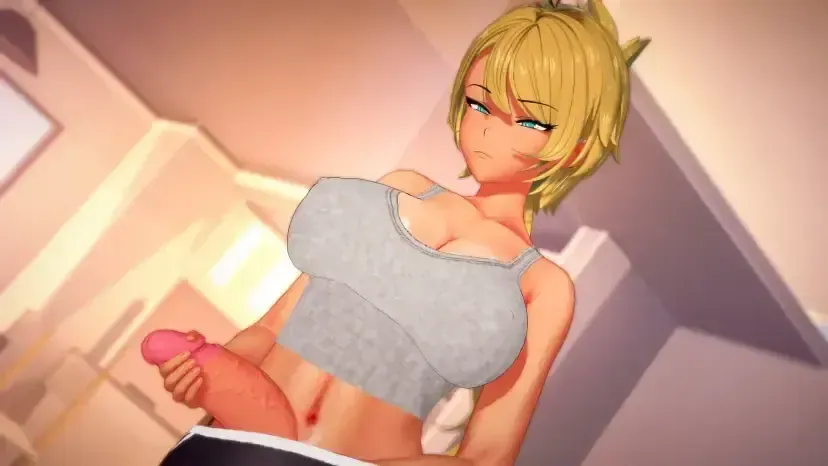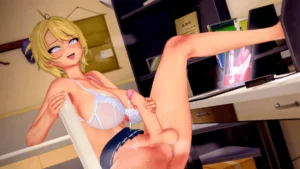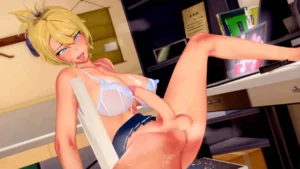
Futa’s World of NTR
Play Futa’s World of NTR
Futa’s World of NTR review
Explore the immersive visual novel experience with branching narratives and dynamic gameplay mechanics
Futa’s World of NTR stands out as a provocative visual novel that combines storytelling depth with player agency. Developed by ScarletGames, this game follows a compelling narrative centered on a protagonist navigating complex social dynamics and relationship choices. The experience blends dialogue-driven gameplay with consequence-based decision-making, creating a world where every choice reshapes the story. Whether you’re drawn to intricate character development or branching narrative paths, this visual novel delivers an engaging experience that rewards exploration and strategic relationship management. Understanding the core mechanics and features will help you maximize your gameplay experience.
Understanding Futa’s World of NTR: Core Gameplay Mechanics
What Makes This Visual Novel Unique? 🎮
Let me tell you about the first time I truly “got” Futa’s World of NTR. I was on my third playthrough, convinced I had mastered the relationship meter system, when a character I’d been diligently courting suddenly confronted me about a seemingly minor lie I’d told hours of gameplay earlier. My jaw literally dropped. That’s the moment I realized this isn’t just another visual novel—it’s a living, breathing world where your choices don’t just collect dust in some save file; they actively shape everything that follows.
The Futa’s World of NTR gameplay mechanics stand out because they transform passive reading into active participation. Unlike traditional games where you might just click through dialogue, here you’re constantly managing, deciding, and dealing with the fallout. It’s like being the director of your own dramatic series where the actors actually talk to each other behind your back! 🤯
What truly separates this experience is how all systems interconnect. Your branching narrative choices during morning conversations directly impact which evening events become available. The character affection system isn’t just numbers going up—it’s a delicate ecosystem where showing too much attention to one person can make others jealous or suspicious. I learned this the hard way when two characters I was balancing both discovered my duplicity and formed an alliance against me! The game remembered interactions I’d completely forgotten about, making the world feel astonishingly coherent and reactive.
Dialogue Trees and Relationship Systems 💬
Remember those choose-your-own-adventure books where you’d flip to page 73 if you wanted to be brave, or page 44 if you wanted to run away? The visual novel dialogue trees in Futa’s World of NTR make those books look like child’s play. Every conversation is a potential crossroads, and the game excels at making you feel the weight of even seemingly innocent remarks.
Let me give you a real example from my gameplay that perfectly illustrates the consequence-based storytelling game elements:
Early in the game, I had this conversation with character “A”:
A: “Did you see character ‘B’ at the festival last night? They seemed really happy.”
My dialogue options appeared:
– “Yeah, they were with character ‘C’ all evening” (Truthful)
– “I didn’t really notice” (Neutral)
– “They seemed pretty lonely actually” (Deceptive) 🚩Thinking I could manipulate the situation, I chose the deceptive option. Fast forward several in-game days, and character “B” approaches me furious: “I heard you told ‘A’ I was lonely at the festival! ‘C’ showed them pictures of us having a great time together. Why would you lie about that?”
This single choice triggered a cascade of consequences: character “A’s” trust meter dropped significantly, character “B” became much harder to romance, and character “C” (who I hadn’t even been focusing on) started viewing me as a potential rival. The game’s character affection system doesn’t just track how much characters like you—it tracks how well they think they know you, and how reliable they find your word.
The relationship meter system is your compass in this emotional landscape. It’s not just one number per character, but multiple dimensions:
- Trust: How much they believe what you say
- Affection: Their romantic interest level
- Loyalty: Their commitment to your relationship versus others
- Suspicion: How closely they’re monitoring your activities
| System | Description | Game Impact |
|---|---|---|
| Dialogue Trees | Branching conversation options that reveal different information and relationship opportunities | Directly influences which story paths become available and character perceptions |
| Relationship Meters | Multi-dimensional tracking of trust, affection, loyalty and suspicion for each character | Determines scene availability, character behavior, and ending eligibility |
| Time Management | Limited daily action points that must be allocated between characters and activities | Forces strategic prioritization and creates opportunity costs for every decision |
| Consequence Tracking | Comprehensive memory of player choices and character reactions across the entire game | Creates long-term narrative coherence and makes choices feel meaningful |
Time Management and Consequence-Based Storytelling ⏳
If the dialogue trees are the words, and relationship systems are the emotions, then time management is the heartbeat of Futa’s World of NTR. This is where the time management visual novel aspects truly shine, creating a constant, delicious tension between what you want to do and what you actually have time for.
Each in-game day gives you a limited number of action points, and oh boy, does every point count! 🎯 Early on, I made the classic mistake of spreading myself too thin—trying to maintain multiple relationships simultaneously without dedicating enough focused attention to any one person. The result? Mediocre relationship levels across the board, and missing out on the deeper, more intimate story arcs that require concentrated effort.
The game masterfully implements consequence-based storytelling game principles through what I call the “attention deficit domino effect.” When you consistently prioritize one character over others, the neglected characters don’t just passively wait for you—they talk to each other, they form their own connections, and they might even discover things about your activities that you’d prefer remained hidden. I still remember the shock when a character I’d been ignoring for a week approached me with detailed knowledge of my activities with someone else, complete with timestamps and locations!
Here’s what makes the Futa’s World of NTR gameplay mechanics so brilliant regarding consequences:
The game doesn’t punish you for making “wrong” choices—it rewards you for making committed choices by showing you the natural outcomes of your priorities.
The trust token system adds another strategic layer to this time management visual novel experience. By completing character-specific mini-games and making choices that align with their values, you earn tokens that can be “cashed in” for significant relationship boosts or to recover from major mistakes. These mini-games aren’t just filler content—they’re thematic activities that reveal character personalities and backstories while providing mechanical advantages.
Managing competing character interests requires both macro and micro strategy. On a macro level, you need to plan which relationship paths you want to pursue over the entire game. On a micro level, you need to adapt to daily opportunities and crises. The dynamic character evolution means that NPCs who feel neglected might:
– Confront you directly about your absence
– Seek comfort or companionship elsewhere
– Become more independent and less available when you do return
– Share suspicions with other characters
The branching narrative choices created by this system are astonishing in their variety. During my various playthroughs, I’ve discovered entire character arcs and locations that remained completely hidden until I made specific time allocation decisions. The game tracks your attention distribution so meticulously that it can create narrative payoffs for patterns you didn’t even realize you were establishing.
What makes the Futa’s World of NTR gameplay mechanics truly special is how they create emergent storytelling. The most memorable moments often come from unexpected intersections of systems—when your careful time management plan collapses because two characters you’ve been romancing simultaneously decide to compare notes, or when a character you’ve been neglecting surprises you by intervening in a conflict you’re having with someone else.
The relationship meter system serves as your reality check throughout this process. Those numbers aren’t abstract—they’re measurements of genuine connection (or lack thereof) that directly determine which story branches remain open to you. Letting a relationship meter drop too low might close off entire chapters of content, while maintaining balanced meters across multiple characters creates its own unique narrative tensions and opportunities.
Ultimately, the genius of these interconnected systems is that they make you feel like you’re navigating real relationships with real stakes. The consequence-based storytelling game design ensures that your experience is uniquely yours, shaped by hundreds of small decisions that accumulate into a narrative tapestry nobody else will see in quite the same way. Whether you’re meticulously planning every interaction or embracing the chaos of spontaneous choices, Futa’s World of NTR provides a deeply personal journey through its beautifully complex systems. 🌟
Futa’s World of NTR delivers a sophisticated visual novel experience that prioritizes player choice and narrative consequence. The game’s strength lies in its dynamic character evolution system, where every decision ripples through the story, creating personalized narrative journeys for each player. From the intricate dialogue trees and relationship management systems to the secret endings and hidden content, the game rewards exploration and strategic thinking. The continuous development cycle ensures fresh content with substantial updates featuring thousands of new words, hundreds of images, and multiple animations. Whether you’re drawn to complex character relationships, branching narratives, or consequence-based storytelling, Futa’s World of NTR offers an immersive experience that respects player agency. The game’s well-defined characters and engaging premise create a compelling reason to explore multiple playthroughs and discover different narrative paths. If you’re interested in visual novels that combine meaningful choices with rich character development, this title deserves your attention.
















